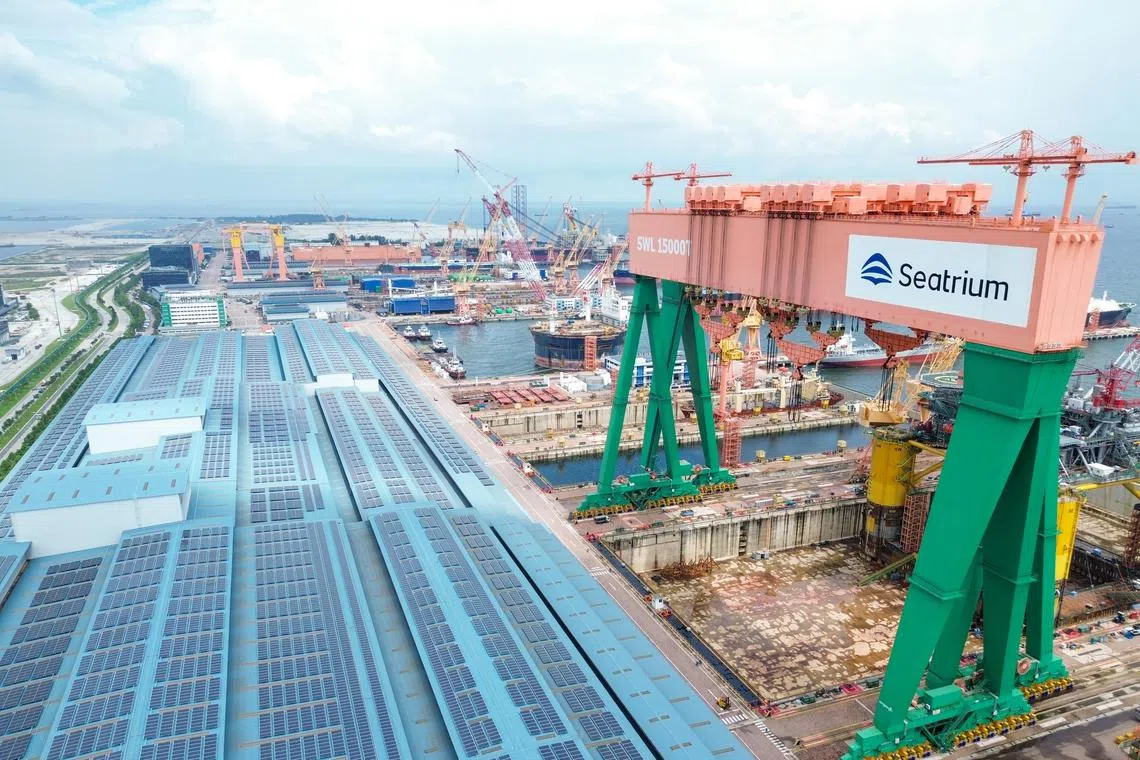- Joined
- Jul 25, 2008
- Messages
- 14,767
- Points
- 113
Ex-IPP director Goh Jin Hian wins appeal, court says firm failed to prove his breach caused losses

Goh Jin Hian outside the State Courts on Sept 20, 2023.PHOTO: SHIN MIN DAILY NEWS FILE
Grace Leong
Jun 05, 2025
SINGAPORE - The Court of Appeal has found Goh Jin Hian, a former director of insolvent marine fuel supplier Inter-Pacific Petroleum (IPP), is not liable to pay US$146 million (S$187 million) plus interest in compensation for losses suffered by the firm.
In overturning a lower court ruling that found Goh was not entitled to relief from liability, the Appellate division of the High Court clarified that “it cannot be part of a director’s duty of supervision and oversight to pick up fraud unless there are tell-tale warning signs.
“A director may be a sentinel, but he is not a forensics investigator or a sleuth, unless there are signs that would put him on inquiry,” according to a 63-page ruling on June 5 delivered by Justice Kannan Ramesh, a Judge of the Appellate division.
“While we agree with the (High Court) Judge that Dr Goh had breached the care duty by reason of his ignorance of the cargo trading business, IPP has failed to show... that the breach caused the loss in question,” the Appellate court said.
Goh, the son of former prime minister Goh Chok Tong, served as a director of IPP from June 28, 2011, to August 2019.
Senior Counsel Thio Shen Yi of TSMP Law Corp, who represented Goh, noted that the latest decision is an important clarification on the law of the duties of directors.
“Dr Goh has always maintained that his conduct caused no avoidable loss to IPP, and we believe he has been vindicated. This is an important decision that has practical implications for all directors,” said Mr Thio, who acted for Goh with Ms Nanthini Vijayakumar, a partner of TSMP Law.
Deloitte & Touche, IPP’s judicial managers turned liquidators, had sued Goh to recover US$156 million in losses, accusing him of “sleepwalking through his time as a director”, and failing to discover and stop drawdowns in trade financing between June 2019 and July 2019 to fund alleged non-existent or sham transactions.
High Court Justice Aedit Abdullah had found that Goh is not entitled to relief from liability because of “the egregiousness of his breaches of duty, chief among which was his ignorance as to IPP’s cargo trading business” – a “vehicle of fraud” that had “disastrous consequences” for the company.
Goh had appealed the ruling in February 2024 that found him liable for breach of director’s duties and statutory duties and losses suffered by IPP.
In allowing Goh’s appeal, the Appellate court found that the three purported red flags that IPP relied on “were not in fact red flags that would have put Dr Goh on a train of inquiry leading to the fraud in the cargo trading business being uncovered and the loss thereby averted.”
The Appellate court concluded that this was a case of “deep-seated fraud.”
Although Dr Goh was not aware of the cargo trading business, the court ruled that “it does not follow that if Dr Goh had been aware of the cargo trading business, he would have discovered the fraud and thereby put a stop to it”.
“There is no suggestion by IPP there were any, apart from the ‘red flags’, which we have concluded were not in fact red flags. Further, there was no allegation that the auditor and IPP’s financial manager alerted Dr Goh of any issues with the accounts, or that the monthly management accounts and financial statements suggested anything untoward.
“Thus, there is nothing to the point that if Dr Goh had been aware of the cargo trading business, he would have exercised oversight in a manner which would have picked up the fraud and averted the loss.” the Appellate court wrote.
Mr Thio said: “Directors owe fiduciary obligations and duties of care to a company but the Appeals Court has crucially recognised the practical and commercial limits to their ability to scrutinise for and detect fraud, especially deep-seated fraud. This acknowledges the complex commercial realities that directors often operate in.”






